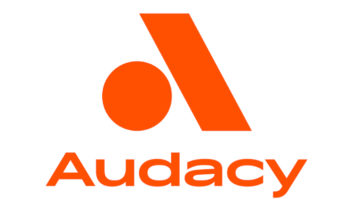
A wall of patents at the iBiquity headquarters in Maryland. Continental believes the company is trying to expand the scope of a “patent monopoly” to include receiver components that are not patented.
Credit: Photo by iBiquity Digital IBiquity Digital wants a federal court to dismiss a patent suit filed by an automotive receiver supplier.
The case between the HD Radio developer and plaintiffs Continental Automotive GmbH and Continental Automotive Systems Inc. involves multiple back-and-forth legal actions. It is interesting in part because court documents give some insight into how iBiquity structures intellectual property licensing arrangements with receiver suppliers. This is an area of increasing importance, given the technology’s growth in the car environment, but it is one generally unfamiliar to broadcasters, whose interactions with iBiquity typically involve transmission licensing.
CONTRACT TERMS
The case stems from 2005, when iBiquity licensed its receiver technology to Siemens VDO Automotive Corp. Siemens agreed to pay iBiquity HD Radio patent royalties every quarter. Continental, an OEM that sells infotainment systems to automobile manufacturers, acquired Siemens in 2007 and inherited the contract.
Continental has told the U.S. District Court for the Northern District of Illinois, Eastern Division, that for eight years, it paid iBiquity royalties based on the price of the entire receiver, but after reviewing the agreement, Continental decided it was paying too much.
It told the court it interprets the contract to mean it could have been paying as little as $1 in royalties per receiver, up to a maximum of $6 per unit, depending on volume sold. But Continental says it always paid the higher amount because of iBiquity’s incorrect interpretation. It believes it has overpaid iBiquity by more than $1 million.
According to Continental, iBiquity bases the royalty payment on the price of the entire head unit, not only on components of the receiver implementing proprietary HD Radio-related patents. Therefore, it continued, the tech developer is trying to expand the scope of its “patent monopoly” to include receiver components that are not patented.
IBiquity believes 25 patents from its portfolio are “essential” to the HD Radio portion of a receiver. These include “Joint Equalization System for AM Digital Receiver,” “Method and Apparatus for Simultaneously Broadcasting and Receiving Digital and Analog Signals,” “Audio Blend Method and Apparatus for AM and FM In-Band On-Channel Digital Audio Broadcasting” and “Method and Apparatus for Reduction of Interference in FM In-Band On-Channel Digital Audio Broadcasting Receivers.”
Continental isn’t disputing the actual 25 HD Radio receiver patents; the OEM supplier is saying it should pay only for the iBiquity patented components, not for other features and functions of the receiver. Continental emphasizes that its headunits have functions beyond receiving and decoding HD Radio signals, such as navigation, Bluetooth, telematics and multimedia playback functions like DVD and CD as well as receiving and decoding analog AM/FM.
The Illinois-based company has purchase agreements with third-party component manufacturers to buy HD Radio semiconductor components for use in Continental’s headunits. Receiver-makers can either build HD Radio receivers from scratch or buy certain components and integrate those, as Continental does. One advantage of the latter approach is that products can be finished faster, iBiquity has told Radio World over the years.
The supplier decided that iBiquity had misinterpreted its own agreement, and so it stopped paying in the third quarter of 2013.
According to a letter from iBiquity to Continental that was submitted to the court, iBiquity wanted to renew Continental’s licensing agreement for a 10-year period under the original terms and does not agree with Continental that it had misinterpreted its own contract. “Specifically, Continental made it clear to iBiquity that Continental would not pay a royalty based on iBiquity’s method of calculation, a method that has been accepted by all of iBiquity’s other licensees,” the company stated in its November 2013 letter.
IBiquity warned Continental it was “prepared to take action” if the auto supplier didn’t pay, and that Continental would also be liable for 1.5 percent per month interest on top of the overdue and (publicly unspecified) total debt.
PATENT VS. CONTRACT
When Continental didn’t pay, iBiquity filed a breach of contract suit in Maryland this February, seeking to recover monetary damages. Much of iBiquity’s paperwork has been filed to the Circuit Court in Montgomery County, Md. under seal and/or with portions redacted, so it’s difficult to determine how much money it seeks from the auto supplier. Continental then filed its federal court suit in March.
In a motion to dismiss the Continental lawsuit, iBiquity attorneys claimed the federal court lacks jurisdiction. They told the court that the dispute boils down to an interpretation of an intellectual property license agreement. “Despite Continental’s assertion that its complaint invokes substantial questions of patent law, the only valid and ripe issues arise under state contract law,” says iBiquity in a filing.
According to iBiquity, Continental’s claims of patent exhaustion and patent misuse are not proper but rather are defenses to a “hypothetical” patent infringement suit. The supplier’s claim, iBiquity argues, fails to mention that iBiquity had just filed its own suit in Maryland. “Viewed in that context, it becomes clear that Continental’s complaint is an attempt to manufacture federal … jurisdiction to evade iBiquity’s first-filed state law claims.”
What’s clear from the paperwork that Continental filed with the federal court is that the automotive supplier didn’t like the agreement it inherited from Siemens. Continental asserts iBiquity has misused its patents “through its attempts to improperly expand the scope of its patent monopoly by demanding royalties over components not within the scope of the patent claims, or both.”
IBiquity says in response: “Continental’s complaint is a transparent and baseless attempt to recast its defenses to iBiquity’s state law breach of contract action into affirmative claims ‘arising under’ federal patent law.”
Continental wants the $1 million it believes it has overpaid iBiquity, and a new licensing agreement based only on on royalties for iBiquity’s patented receiver components. Among other things, Continental is seeking monetary damages for what it considers to be unjust enrichment from overpaying in the past; the firm also sought an injunction to stop iBiquity from “interfering with Continental’s business relationships” by telling customers that the OEM was no longer an HD Radio receiver supplier.
Both sides also disagreed about when their arrangement ended. Continental said its license agreement with iBiquity expired June 29 and asked the court to enforce the deal until the latest litigation played out; iBiquity believes the license expired earlier because the companies couldn’t negotiate an agreement after Continental’s payments stopped.
The auto parts supplier wanted the court to force iBiquity not to terminate what Continental considered to be an existing licensing deal.
Continental had filed a request for a temporary restraining order and preliminary injunction against iBiquity related to this goal. Then in July, it withdrew those requests as the OEM supplier and iBiquity extended the current licensing contract regarding iBiquity’s intellectual property for receiver technology. But the monetary terms and length of the contract are unclear because portions of the document filed with the federal court are redacted.
So while it appears the sides may have settled one portion of the federal proceedings, their dispute over patent infringement continues in federal court. IBiquity recently asked the court to dismiss Continental’s patent infringement claim related to the sale of HD Radio receivers while Continental opposed that request.
Meanwhile, the Maryland case is ongoing. Continental tried to get that case stayed but this was denied in June. Both companies have asked the court for the right to file documents confidentially. Discovery in the case is set to be completed by mid-October.










